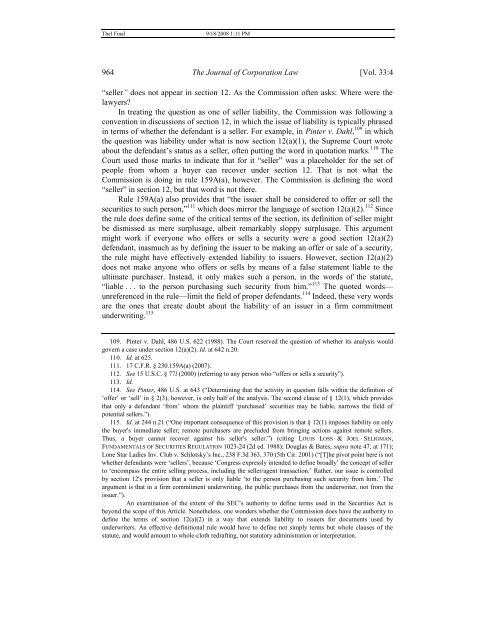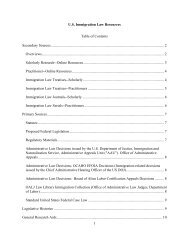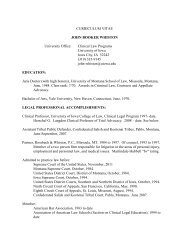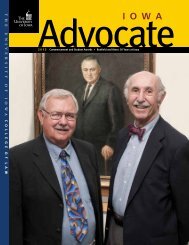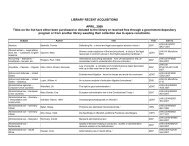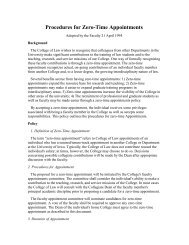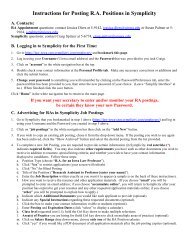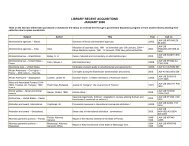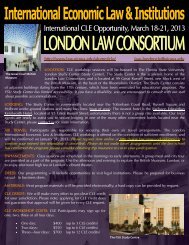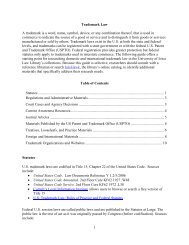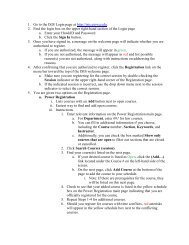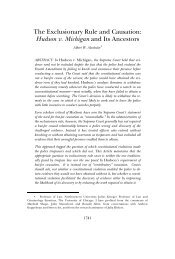Free Writing Steve Thel*
Free Writing Steve Thel*
Free Writing Steve Thel*
- No tags were found...
Create successful ePaper yourself
Turn your PDF publications into a flip-book with our unique Google optimized e-Paper software.
Thel Final9/18/2008 1:11 PM964 The Journal of Corporation Law [Vol. 33:4“seller” does not appear in section 12. As the Commission often asks: Where were thelawyers?In treating the question as one of seller liability, the Commission was following aconvention in discussions of section 12, in which the issue of liability is typically phrasedin terms of whether the defendant is a seller. For example, in Pinter v. Dahl, 109 in whichthe question was liability under what is now section 12(a)(1), the Supreme Court wroteabout the defendant‟s status as a seller, often putting the word in quotation marks. 110 TheCourt used those marks to indicate that for it “seller” was a placeholder for the set ofpeople from whom a buyer can recover under section 12. That is not what theCommission is doing in rule 159A(a), however. The Commission is defining the word“seller” in section 12, but that word is not there.Rule 159A(a) also provides that “the issuer shall be considered to offer or sell thesecurities to such person,” 111 which does mirror the language of section 12(a)(2). 112 Sincethe rule does define some of the critical terms of the section, its definition of seller mightbe dismissed as mere surplusage, albeit remarkably sloppy surplusage. This argumentmight work if everyone who offers or sells a security were a good section 12(a)(2)defendant, inasmuch as by defining the issuer to be making an offer or sale of a security,the rule might have effectively extended liability to issuers. However, section 12(a)(2)does not make anyone who offers or sells by means of a false statement liable to theultimate purchaser. Instead, it only makes such a person, in the words of the statute,“liable . . . to the person purchasing such security from him.” 113 The quoted words—unreferenced in the rule—limit the field of proper defendants. 114 Indeed, these very wordsare the ones that create doubt about the liability of an issuer in a firm commitmentunderwriting. 115109. Pinter v. Dahl, 486 U.S. 622 (1988). The Court reserved the question of whether its analysis wouldgovern a case under section 12(a)(2). Id. at 642 n.20.110. Id. at 625.111. 17 C.F.R. § 230.159A(a) (2007).112. See 15 U.S.C. § 77l (2000) (referring to any person who “offers or sells a security”).113. Id.114. See Pinter, 486 U.S. at 643 (“Determining that the activity in question falls within the definition of„offer‟ or „sell‟ in § 2(3), however, is only half of the analysis. The second clause of § 12(1), which providesthat only a defendant „from‟ whom the plaintiff „purchased‟ securities may be liable, narrows the field ofpotential sellers.”).115. Id. at 244 n.21 (“One important consequence of this provision is that § 12(1) imposes liability on onlythe buyer's immediate seller; remote purchasers are precluded from bringing actions against remote sellers.Thus, a buyer cannot recover against his seller's seller.”) (citing LOUIS LOSS & JOEL SELIGMAN,FUNDAMENTALS OF SECURITIES REGULATION 1023-24 (2d ed. 1988); Douglas & Bates, supra note 47, at 171);Lone Star Ladies Inv. Club v. Schlotsky‟s Inc., 238 F.3d 363, 370 (5th Cir. 2001) (“[T]he pivot point here is notwhether defendants were „sellers‟, because „Congress expressly intended to define broadly‟ the concept of sellerto „encompass the entire selling process, including the seller/agent transaction.‟ Rather, our issue is controlledby section 12's provision that a seller is only liable „to the person purchasing such security from him.‟ Theargument is that in a firm commitment underwriting, the public purchases from the underwriter, not from theissuer.”).An examination of the extent of the SEC‟s authority to define terms used in the Securities Act isbeyond the scope of this Article. Nonetheless, one wonders whether the Commission does have the authority todefine the terms of section 12(a)(2) in a way that extends liability to issuers for documents used byunderwriters. An effective definitional rule would have to define not simply terms but whole clauses of thestatute, and would amount to whole-cloth redrafting, not statutory administration or interpretation.


